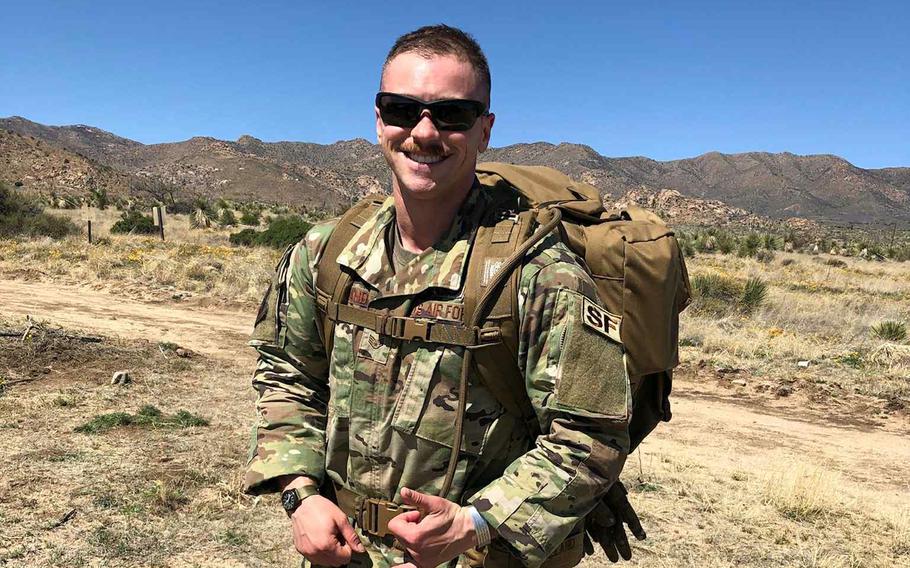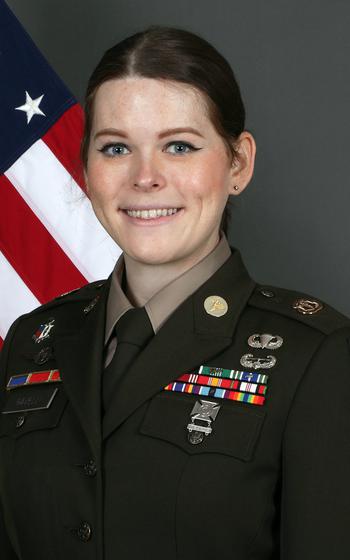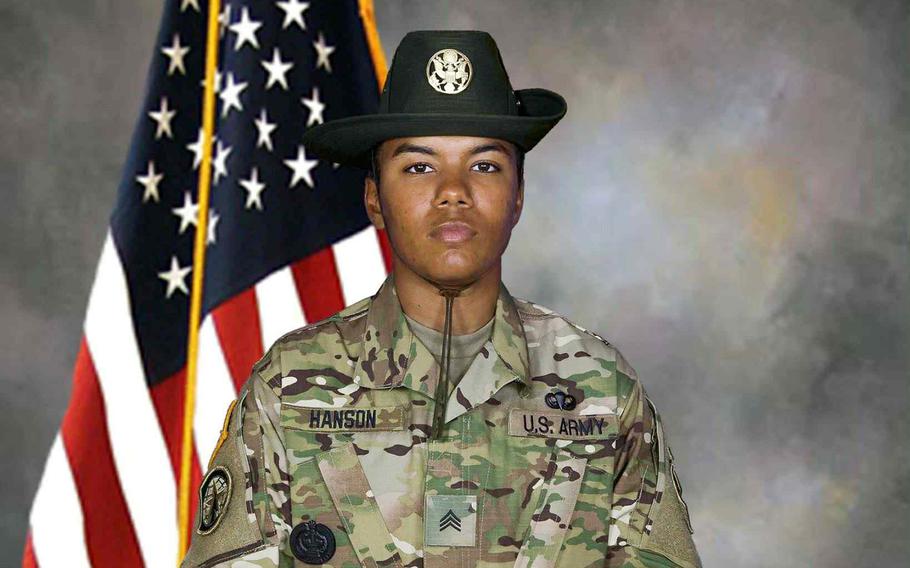
Air Force Staff Sgt. Logan Ireland says options for transgender troops like himself are narrowing. (Logan Ireland)
Master Sgt. Logan Ireland, a transgender airman caught in limbo after a January executive order mandated the discharge of all transgender service members, faced a critical financial decision this month.
He could accept a voluntary separation from the Air Force or choose an involuntary one, which would cost him half the separation pay available to those who leave willingly.
Ireland is eligible for more than $202,000 if he volunteers to leave the Air Force, or $101,000 if the service forces him out, according to pay calculations. His separation pay will be deducted from any benefits he would receive from the Veterans Administration.
“There’s just no good decision,” he told Stars and Stripes on an Aug. 12 video call. “Think of it this way, you worked for a company for 15, 17, 18, years and now you’re being told, ‘Hey, you did everything correctly to garner retirement, you did everything we asked you to do.”
But “you’re not going to be getting that pension that we promised. Sorry,” he said.
The options for transgender troops are narrowing, Ireland said. In addition to losing retirement pensions and other benefits, service members say their final days in the military are forced and chaotic.
Ireland, formerly with the Office of Special Investigations at Joint Base Pearl Harbor-Hickam, Hawaii, said he applied for the Temporary Early Retirement Authority Program in May. With approval in hand on June 6, he began the process of officially retiring on Dec. 1.
But on Aug. 4, the Air Force announced that transgender troops with 15 to 18 years of service no longer qualify for the program. Another memo, issued on Aug. 12, denied them the opportunity to contest their expulsion before a separation board.
President Donald Trump’s order expelling troops with gender dysphoria — when a person’s biological sex does not match their gender identity — was followed by service memos mandating changes to their records to reflect their sex at birth. In some cases, this has meant adopting the opposite gender’s uniform and grooming standards.
Some transgender service members still on duty are required to wear the uniform of their sex at birth, Ireland said. Others must cut their hair to comply with dress and appearance regulations.
Those identified in this report emphasized they were speaking in their personal capacity and not on behalf of the Department of Defense or the U.S. government. The Office of the Secretary of Defense did not respond to an Aug. 11 email seeking comment.

Staff Sgt. Allison Ravelli, a transgender combat medic with the Army Air Medical Research Laboratory at Fort Rucker, Ala., has been on administrative absence since May 2025. (Allison Ravelli)
Staff Sgt. Allison Ravelli’s 3-year-old daughter will lose Tricare benefits on Feb. 1, she said on an Aug. 1 video call. The combat medic with the Army Air Medical Research Laboratory at Fort Rucker, Ala., has been on administrative absence since May.
Ravelli said she has earned recognition from the research lab for her work there. On April 25, the lab celebrated her promotion on its Facebook page: “Staff Sgt. Ravelli exemplifies the highest standards of the U.S. Army and the Soldier’s Creed while serving at USAARL.”
Although she has earned numerous medical certifications, from paramedic to trauma life support, Ravelli said her goal of being commissioned in the Army Nursing Corps has evaporated.
Army Staff Sgt. Boston Hanson, of the 1310 Brigade Engineer Battalion at Fort McCoy, Wis., is still working, he said by video call on July 31.
“Everyone in the unit has been very supportive,” he said.

Army Staff Sgt. Boston Hanson, who is transgender, said his command allows him to work until he’s forced into administrative absence. (Boston Hanson)
Hanson is required to adhere to uniform and grooming standards consistent with his sex at birth, according to an Army order, but he typically wears unisex utility uniforms to work.
A 14-year solider, veteran of Afghanistan and former drill sergeant, Hanson said his command is awaiting further guidance before discharging him because, “there’s really not enough clarification on how to proceed.”
Hanson said his command allows him to work until he’s forced into administrative absence.
“The reasoning behind it is, ‘Well, we don’t have anyone to replace you.’ But here’s the thing: That’s not our problem — we pointed that out,” he said. “Our problem is taking care of us at this point, getting ready for that transition into civilian life because we have to figure it out, especially for those with families.”
All three service members said that expelling transgender troops will affect military readiness by forcing out qualified individuals with proven service records.
“I, and many others like me, have put in constant hard work, constantly going above and beyond,” Ravelli said. “I joined the Army to give back and be the best soldier that I can be … and now that’s being thrown away for no reason, and I think people just don’t see that.”